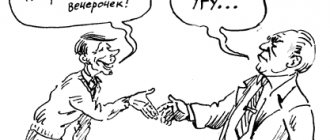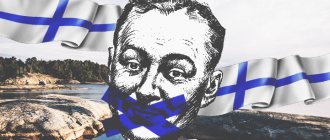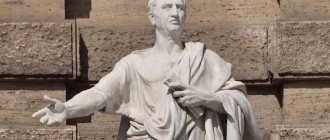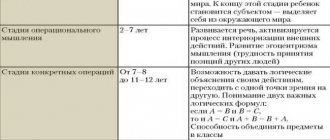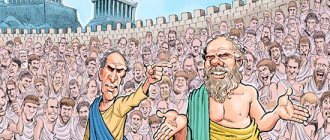.
Psychologists have been studying the leadership qualities and inclinations of people who can be leaders for a long time. A person must have a certain set of qualities that attract others. Such individuals always have supporters who follow them and enemies who do not accept their concept. Leaders never remain in the shadows; they always implement their ideas, skillfully organize the work of other people, pursuing their goals.
Basic theories
The first theory of leadership is charismatic. Its adherents believed that any individual cannot be a leader. A person must have a certain set of qualities and traits from birth. Subordinating and organizing other people's work is an art, not a science, so learning to be a leader is impossible.
Behaviorists believed that there are certain patterns and character traits that are not only innate, but also acquired through the process of socialization. By studying processes and patterns, experts have discovered more than 200 qualities necessary for successfully leading a group of people. There are cases where a person, without possessing basic leadership talents, coped with the responsibilities of a leader perfectly.
This is how the situational theory was derived.
According to this concept of leadership, managerial qualities awaken in response to a certain situation, that is, they are a means of adaptation of the body.
Western psychologists adhere to a synthetic concept of leadership. According to it, leadership is a way of organizing relationships between a group of people, where the leader is his supervisor. The concept is based on an integrated approach to the consideration of management processes, which are based on 3 components.
- Having leadership qualities.
- Personal characteristics of led people.
- The nature of the situation.
Not only the leader himself influences the people he leads and tries to model the situation. The manifestation of leadership qualities of a certain individual is also influenced by the situation itself and the people around him.
Components
Domestic psychologists believe that leadership has 3 components:
- Emotional - each group member can turn to the leader with their problems. He is called the soul of the team.
- Business person - knows how to provide connections, organize interaction, and achieve results. These are the “hands of the group.”
- Erudite - has answers to all questions, easily finds the necessary information. This is the “brain of the team.”
Typically, a successful leader combines two components. The ideal one, which has all three components, is very rare.
Main types
If we consider the management process as a leader-subordinate relationship, types of leadership are based on two principles.
- Authoritarian rule.
- Democratic.
An authoritarian leadership style involves concentrating all power in the hands of one person. The leader personally chooses the goals and methods of achieving them. Communications between led people are minimized and are completely controlled by the leader. Subordinates are suppressed, initiative is not welcomed. The main instrument of government is fear of punishment.
A democratic leadership style involves the active participation of employees in working towards set goals; initiative is welcomed. The responsibility of led people is much higher than under authoritarian rule.
There is another classification developed by M. Weber. This is the leading typology of leadership today.
- Traditional type of government - the concept of leadership is based on the traditions of a particular social or cultural group, its habits, rituals. Power is transferred by right of inheritance. Only someone born into a family of rulers can become a leader.
- The rational type is based on the legal norms established in a particular society. The leader is chosen according to these norms. The rights and obligations of the ruling person are also regulated by generally accepted legislation.
- Charismatic type. Its basis lies in the exclusivity of the leader’s face. The combination of a person’s real qualities and those endowed by the society of led followers is taken into account, while the personal qualities of the leader play a secondary role in management.
According to Weber, the leading type of government is charismatic, since it is not tied to the past and involves development, that is, a transition to a rational type.
Leadership concept
There is no exact definition of the concept of “leadership”. Some say it is a way of influencing and controlling, others say it is the ability of one person to motivate others to work hard. First of all, leadership combines:
- strength of character;
- the will to win;
- wonderful gift of persuasion;
- active desire for success;
- willingness to take responsibility for the actions of others;
- ability to interact with people, etc.
The advantages of leadership are that it gives freedom of action, respect from other people, and the joy of doing what you love. It provides spiritual and personal growth. Gives a person satisfaction and self-esteem, because people trusted him, confidence in their capabilities and strengths.
Leadership manifests itself in different areas of life - politics, business, sports. This is part of family life, because there should always be a leader in the family. Leadership is especially important in extreme situations, since only an organizing principle (leadership) can ultimately lead to control over the situation.
A leader can have both positive and negative influences
Psychological styles
Leadership models are based on psychological characteristics of temperament. Classification of leadership according to D. Caserich identifies 4 styles:
- intuitive-emotional;
- intuitive-logical;
- sensory-decisive;
- sensory-perceptive.
Intuitive-emotional
The leader is a kind of catalyst for stimulating the growth of led people. Such a leader is attentive to the problems of his subordinates and tries to redirect their personal potential for the common good. For him, the psychological comfort of his employees comes first.
Problems that arise during work are perceived by the leader as a personal defeat. Because of this management style, employees often become opinionated and fail to complete work on time.
Intuitive-logical
Such a leader cares little about the feelings of others. All his work is based on the creation and development of plans. He fiercely defends any point of view. Doesn't need followers too much.
He chooses people to subordinate himself on his own, and does not keep anyone nearby by force.
Intolerant of people with low intelligence. Presents the existing picture as more complex than it actually is.
Sensory-decisive
Plans everything in advance. Requires strict adherence to the plan. The main criterion in his work is the preservation of established rules, material resources, and traditions. The order of the established system is the main value and does not accept new ideas.
Such a leader takes the responsibilities of himself and those around him very responsibly. The disadvantages of such a government are the leader’s narrow-mindedness in matters of introducing innovations and totalitarian preferences in communicating with subordinates.
Sensory-perceptive
Suitable for use in law enforcement agencies and emergency services. The leader quickly finds a solution, relying only on his feelings and knowledge. Does not always respect established laws.
In routine matters, this leadership style is completely useless. And the leader himself, endowed with quick reactions, cannot sit still.
Political leader through the eyes of Machiavelli
In the work “The Prince” by Niccolò Machiavelli (an Italian philosopher), the requirements for a person who wants to become a successful politician were described in detail. The qualities of a leader in his view look like this:
- Avoid hatred.
- Win people over by instilling trust.
- Create the appearance of virtue in front of the people, regardless of actions.
- Act quickly and firmly if the situation requires it.
- Change your management style based on the situation.
Types of Leaders
Sociology and psychology, studying interpersonal relationships and the qualities needed by leaders, consider types of leaders, each of which brings together a group of people consciously or unconsciously.
- Patriarchal ruler or superstitious - a strict father who is loved, his opinion is respected. Can easily suppress unrest in a group. Exudes confidence. He is often chosen as a leader because of the feeling of security next to him, love and respect for his opinion.
- The leader personifies the desires of the people he leads. All members of the community try to copy his behavior, manner of dressing and behaving.
- A tyrant uses authoritarian leadership. Those around him are afraid to contradict him, so they do everything in accordance with his instructions. Such people often come to power on their own.
- The organizer knows how to organize the work of all operating units. He sees potential in everyone and knows how to redirect forces in the right direction. In the management process, it helps to realize the goals of the entire community, including its own. Quickly copes with the problems of subordinates, helps relieve feelings of guilt and uncertainty about the appropriateness of actions.
- Seducer - he develops his activities by taking advantage of the weaknesses of those around him. For driven people it becomes a driving force that helps to free themselves from suppressed emotions. Knows how to reduce conflicts. Attracts people to himself, skillfully manipulating their fears and experiences. The group he leads does not notice his shortcomings and completely obeys his desires.
- Hero: self-sacrifice for others is his main character trait that attracts society. Indispensable in the fight against an unjust regime. A bad example is a hidden leader who energizes those around him with his behavior and emotions. Can easily provoke conflict.
- An idol is an example to follow. Attracts and endows those led with its energy. He doesn’t always end up in this place by choice.
- An outcast or scapegoat refers to anti-leaders. It is a factor causing an aggressive attitude. A group of people band together to oppose him. As soon as he is gone, the team will cease to exist.
Types of leadership in psychology
Psychologists and psychoanalysts carefully study manifestations of leadership as the ability to evoke feelings of admiration, respect, trust and even adoration. Among group members, such feelings towards the leader arise unconsciously. Depending on the characteristics of the leader’s personality, the following types of leaders and leadership styles in psychology are distinguished.
- Autocratic. Characterized by quick and individual decision-making, and the leader’s strict power over the group. Shows best results in moments of crisis.
- Business. A leader takes on the role of leading a team to accomplish a specific task. Most often, these are ambitious people with clear motivation who want to move up the career ladder or in the social hierarchy and exhibit leadership qualities.
- Democratic. Democratic leadership style involves active participation in decision making for all group members. Democratic leaders are creative, inspiring, and concerned about creating optimal working conditions.
- Relationship-oriented leadership. The basis is support for team members, concern for their development and effectiveness. This leadership style encourages teamwork and successful collaboration.
- Serving. Characterized by managing people by providing them with assistance. The leader provides honest and reasonable leadership, similar to democratic leadership.
- Indifferent. It is characterized by providing group members with complete freedom of action, which is characteristic of groups of experienced, independent and proactive people.
- Problem-oriented. Aimed at performing a specific task. In this model, leaders perform the tasks of setting goals, developing methods for solving them, distributing responsibilities, and controlling.
- Charismatic. It is based on the inspiration of group members, awakening their enthusiasm. The leader's personality comes to the fore and his interests are placed first in relation to the interests of the group.
- Transformational. It is built on motivating the team to achieve 100% results. The leader focuses on the effectiveness of interaction between group members and takes care of the implementation of common goals and interests. In business, this model is considered the most successful.
Personality typologies
Types of leadership depend entirely on personality traits, self-esteem and the complexity of the self-concept. According to this theory, there are 4 types of leaders.
- The apolitical type is inherent in a person with high self-esteem and a complicated self-concept. He processes new information and presents it in such a way as not to overstep himself.
- A pragmatic leader has low self-esteem and a complicated self-concept. Behaves in accordance with the conditions of feedback from others. Listens to the opinions of others and takes criticism seriously. He often engages in self-flagellation, convicting himself of mistakes.
- Ideologist - he is characterized by high self-esteem and low complexity of the self-concept. Practically does not react to the problems of others. Focused only on satisfying your needs. Characterized by tough behavior.
- An indeterministic leader - he is characterized by low self-esteem and a low level of self-concept. His leadership styles are based on the influence of certain social factors.
How to identify an informal leader
The most accurate way to determine NL is a sociometric test. Do you remember how psychologists did similar things in schools? If it is not possible to invite a specialist and conduct testing, then analyze it yourself:
- with whom employees communicate most often on non-work issues;
- who to turn to for professional advice;
- who voices the reasons for discontent in the team;
- who brings new proposals and ideas.
Surely, when drawing up plans and discussing innovations, one of the subordinates expressed a common opinion, asked questions more often than others, or acted as the instigator of a dispute. Take a closer look at this person and his behavior with colleagues.
There are two styles: constructive and destructive. In the first case, the informal leader generates ideas, organizes the work process and motivates colleagues; in the second, he causes discord and creates conflict situations.
It is important to establish partnerships with constructive ones, because their activities benefit both the department and the business. It is more difficult with the destructive, but its energy can also be controlled. The main thing is to recognize the true motives of leadership: the desire for power, the desire for self-realization. Once you understand what motivates this employee, you will know what to do.
Functional aspect
All leadership models are based on specific actions that the leader will perform. The functions of leadership and their characteristics are described below.
- Constructive – consists in expressing and implementing the goals of a particular society, without infringing on the rights of other social strata in the process of work. The installation sounds ideal, but has never been implemented in practice. Due to the lack of well-thought-out concepts of the modern type and a plan for their implementation, most revolutions ended in failure.
- Organizational – the leader does not do all the work himself. To bring certain ideas to life, he needs free hands. Its main tasks are the ability to see the potential in a person and make him an efficient link in the overall system.
- Coordination – monitoring the work of government bodies and making decisions in accordance with the laws and customs established in society. Integrative – attracting like-minded people to your program. Without this quality, no leader can stay in leading roles for long.
The principle of non-interference
Also interesting is a leader whose actions reflect the principle of non-interference. This style is more progressive than democratic. This leader allows subordinates to make decisions freely. Also, wards have complete freedom in performing tasks that are not limited by the instructions of the supervisor.
But all types of leadership assume that the manager bears final responsibility for decisions made. And the principle of non-interference is no exception. Such a person is not characterized by negligence. He has a clear idea of what his ward actually is. Therefore, such a leader knows perfectly what and in what situation to expect from a subordinate. His task is to correctly distribute responsibilities. After this, you can provide the wards with fairly free conditions, as if only slightly controlling them.
